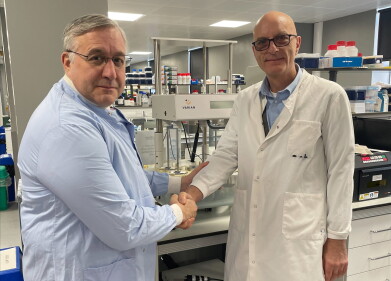News
Is Europe Facing a Superbug Crisis?
Aug 04 2019
European hospitals are showing an alarming susceptibility to the spread of a superbug that appears to be resistant to antibiotics, according to a study from the Sanger Institute in Cambridge. After assessing the number of deaths caused by an antibiotic-resistant bacterium in over 200 hospitals across the continent, the researchers found a concerning spike in cases over an eight-year period.
The number of fatalities has increased six-fold between 2007 and 2015 (the most recent year for which reliable data is available), leading to worries that Europe might be facing a superbug crisis. Since the antibiotics in question are often the last line of defence against diseases and illnesses, a bug which is resistant to them could be incredibly dangerous for human populations.
Klebsiella pneumoniae the culprit
The study, published in the scientific journal Nature, looked at incidences of deaths from Klebsiella pneumoniae, a superbug that is resistant to treatment by carbapenems. Carbapenems are employed by doctors to get rid of an infection when no other forms of medication have worked, and advances in the field mean that bacteria resistant to the drugs are quite rare. However, when they do occur, they have the potential to be deadly – as evidenced by the latest study.
Although K. pneumoniae can lie dormant in a person’s intestinal tract for prolonged periods of time without causing any harm or displaying any symptoms, they become weaponised when the person falls ill. Weakened defences mean the bacterium can infiltrate the lungs and instigate pneumonia or cause meningitis through infecting the blood, brain and skin.
In 2007, there were just 341 recorded cases of death attributable to K. pneumoniae across all of Europe. However, by 2015, that figure had risen to a staggering 2,094 fatalities, causing concern that it will only increase going forwards. The localised nature of the deaths suggests that the bug is being transferred from person-to-person inside the hospitals in question, as well.
Prevention better than the cure
Even though medical science is advancing all the time and breakthroughs are being made every year – including the remarkable use of Tasmanian Devil DNA to fight superbugs in 2016 – researchers and healthcare professionals always insist that preventing contraction of the disease is infinitely preferable to finding a cure for it.
The best way to do this is through maintaining consistently high hygienic standards and avoiding coming into contact with unclean substances or using unsterilized equipment. “We are optimistic that with good hospital hygiene, which includes early identification and isolation of patients carrying these bacteria, we can not only delay the spread of these pathogens, but also successfully control them,” explained Professor Hajo Grundmann, who was a co-author on the latest study.
“This research emphasises the importance of infection control and ongoing genomic surveillance of antibiotic-resistant bacteria to ensure we detect new resistant strains early and act to combat the spread of antibiotic resistance.”
Digital Edition
Lab Asia 32.2 April
April 2025
Chromatography Articles - Effects of small deviations in flow rate on GPC/SEC results Mass Spectrometry & Spectroscopy Articles - Waiting for the present to catch up to the future: A bette...
View all digital editions
Events
Apr 09 2025 Tokyo, Japan
Apr 22 2025 Hammamet, Tunisia
Apr 22 2025 Kintex, South Korea
Analytica Anacon India & IndiaLabExpo
Apr 23 2025 Mumbai, India
Apr 23 2025 Moscow, Russia



















